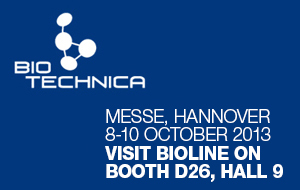The 6th International Meeting on Synthetic Biology (hashtag: #SB6Conf), the world’s foremost synthetic biology (SynBio) meeting, is currently running in London, organised by the BioBricks Foundation, a non-profit organization based in Cambridge, Massachusetts.
BioBricks Foundation SB6.0 Co-Chairs include Professor Paul Freemont and Professor Richard Kitney of Imperial College, who will lead a new £10 million innovation and knowledge centre, to be called SynbiCITE, aimed at providing a bridge between academia and industry and announced at the conference by David Willetts, Minister for Universities and Science.
Imperial College is home to the UK Centre for Synthetic Biology and Innovation a £9m investment aimed at propelling the synthetic biology field forward and promoting SynBio start-ups. International collaboration and networking are important aspects of the meeting, along with poster presentations and ‘lightning talks’ from world leaders in the field of SynBio research.
David Willets said:
“Synthetic biology has huge potential for our economy and society in so many areas, from life sciences to agriculture. But to realise this potential we need to ensure researchers and business work together. This new Innovation and Knowledge Centre will help advance scientific knowledge and turn cutting edge research into commercial success.”
Professor Richard Kitney, co-academic of SynbiCITE added:
“Synthetic Biology could be the next ‘industrial revolution’ for the UK, where tiny devices manufactured from cells are used by us to improve many facets of our lives. From producing new, more sustainable fuels to developing devices that can monitor or improve our health, the applications in this field are limitless.”
The exciting and emerging field of Synthetic Biology research combines the disciplines of engineering and molecular biology to design and build novel, biologically-based parts, devices, and sensors, as well as the re-engineering of existing, natural biological organisms. Synthetic Biology has the potential to deliver important new applications, from detecting the early onset of disease and improving existing industrial processes, food production, green fuels, and developing therapies to fight harmful bacterial infections or cancers.
Much of the future success of synthetic biology is incumbent upon the development of standardized SynBio components that can be combined in predictable and repeatable ways. The precise approach used when fabricating a BioBrick component depends on the fabrication method (PCR or direct synthesis) as well as the type of part being constructed (a standard part or protein coding sequence).
SyntheticBiology.org maintains a nice introduction to Synthetic Biology as well as a useful how-to guide on the subject of constructing novel BioBrick parts for submission to the Registry of Standard Biological Parts.
Bioline makes it easy to harness the power of new generation enzymes to create parts for BioBricks using PCR. We manufacture and supply a range of high-performance PCR and molecular biology cloning tools, enabling researchers to drive their synthetic biology projects forward. Some of our most popular, most frequently used products for leading synthetic biologists presenting at SB6.0 (1, 2) include the High-Fidelity Velocity DNA Polymerase, MyTaq HS DNA Polymerase for Colony-PCR, Competent Cells, Quick-Stick Ligase for TA Cloning, ISOLATE II Plasmid Mini Kits, and our acclaimed range of SensiMix™ and SensiFAST™ Real-Time PCR kits.
If you’ve been attending the #SB6Conf in London this week, let us know if your poster cites any Bioline reagents and your synthetic biology research work and achievements could be showcased in a forthcoming SynBio article on the Bioline blog. And if you’re one of the IGEMers attending the conference, don’t forget to check out our Gem of an offer for iGEM Teams!
One final note regarding the future of synthetic biology and the synthetic biologists of the future, you can keep up to date with all the latest news from the iGEM SynBio research teams around the world by following the international iGEM Teams Twitter list maintained by us @ThePCRCompany.
Citations
1. Giuraniuc CV, MacPherson M, Saka Y, et al. (2013). Gateway Vectors for Efficient Artificial Gene Assembly In Vitro and Expression in Yeast Saccharomyces cerevisiae. PLoS ONE 8(5): e64419. doi:10.1371/journal.pone.0064419
2. Ali H, Ries MI, Nijland JG, Lankhorst PP, Hankemeier T, et al. (2013). A Branched Biosynthetic Pathway Is Involved in Production of Roquefortine and Related Compounds in Penicillium chrysogenum. PLoS ONE 8(6): e65328. doi:10.1371/journal.pone.0065328



 his year we’ll be showcasing our new products
his year we’ll be showcasing our new products 
